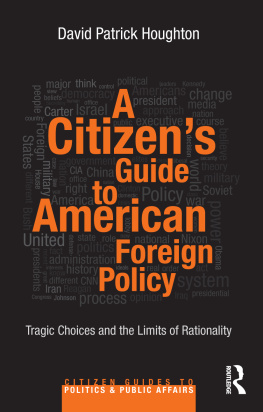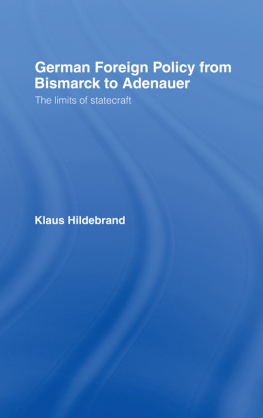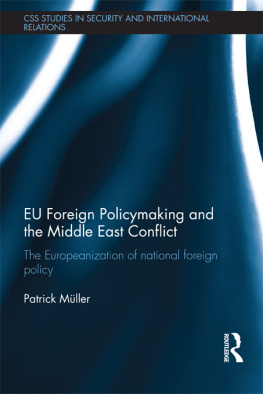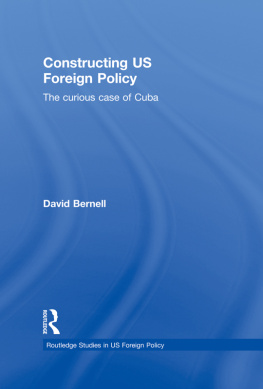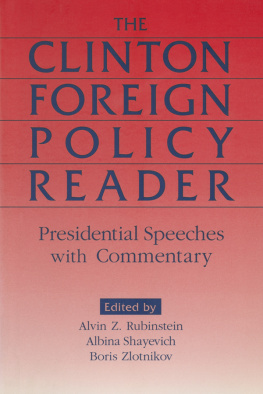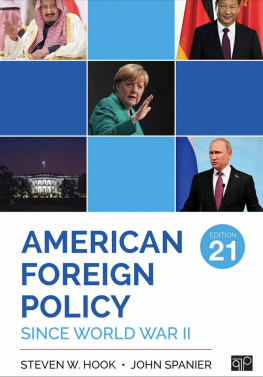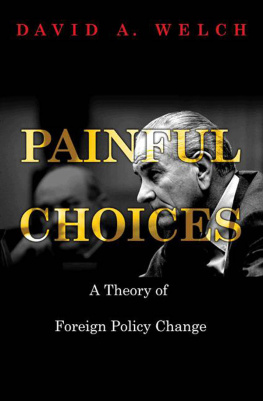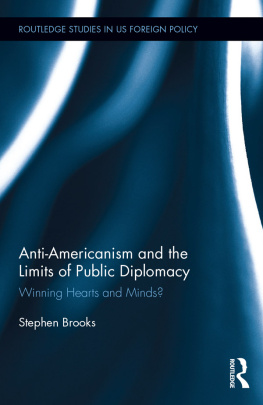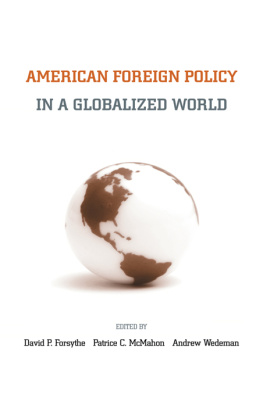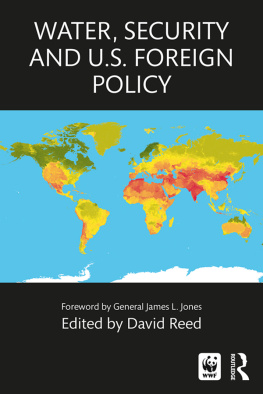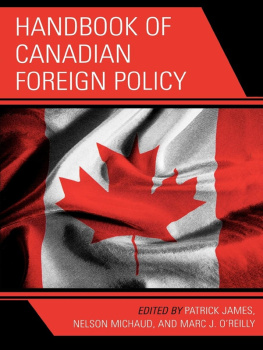A CITIZENS GUIDE TO AMERICAN FOREIGN POLICY
American foreign policy often looks like a trail of man-made debris and disaster. Of course, the explanations for many poorly-made decisions are rather complex. In this brief and cogent analysis, Houghton shows us that understanding American foreign policy often comes down to recognizing the cognitive limitations of the decision-makers, which affects the foreign policy process. Then there is the nature of the decisions themselves. Quite a few decisions in American foreign policy involve tragic choices, where leaders are effectively confronted with a series of progressively bad or uncomfortable options. And it is equally clear that some policies are not the product of any one individuals preferences, but emerge as a consequence of the way in which complex modern governments with large bureaucracies operate.
Written with the interested layperson in mind, as well as students of international affairs, this Citizens Guide to American Foreign Policy asks questions like, Why do presidents so often do things which seem to be directly against the national interests of the United Statesnot just in retrospect, but even at the time? Why do there seem to be so many fiascoes in US foreign policy? Why does Congress sometimes tie the hands of the president in foreign affairs? Why do presidents seem to respond more to opinion polls or to whats on CNN and Fox News than they do to the core interests of the United States? Houghtons overview helps us see past the partisan in-fighting that too often obscures the central issues in foreign affairs. This is vital, required reading for all readers who wish to better understand Americas involvement in the world.
David Patrick Houghton is Associate Professor of Political Science at the University of Central Florida. He is the author of US Foreign Policy and the Iran Hostage Crisis, Political Psychology: Situations, Individuals, and Cases, and The Decision Point: Six Case Studies in US Foreign Policy Decision-Making, as well as co-author of Controversies in American Politics and Society.
CITIZEN GUIDES TO POLITICS AND PUBLIC AFFAIRS
Morgan Marietta and Bert Rockman, Series Editors
Each book in this series is framed around a significant but not well-understood subject that is integral to citizensboth students and the general publicfull understanding of politics and participation in public affairs. In accessible language, these titles provide readers with the tools for understanding the root issues in political life. Individual volumes are brief and engaging, written in short, readable chapters without extensive citations or footnoting. Together they are part of an essential library to equip us all for fuller engagement with the issues of our times.
TITLES IN THE SERIES
A Citizens Guide to American Ideology:
Conservatism and Liberalism in Contemporary Politics
Morgan Marietta
A Citizens Guide to the Constitution and the Supreme Court:
Constitutional Conflict in American Politics
Morgan Marietta
A Citizens Guide to American Foreign Policy:
Tragic Choices and the Limits of Rationality
David Patrick Houghton
A CITIZENs GUIDE TO AMERICAN FOREIGN POLICY
Tragic Choices and the Limits of Rationality
David Patrick Houghton
First published 2014
by Routledge
711 Third Avenue, New York, NY 10017
And by Routledge
2 Park Square, Milton Park, Abingdon, Oxon OX14 4RN
Routledge is an imprint of the Taylor & Francis Group, an informa business
2014 Taylor & Francis
The right of David Patrick Houghton to be identified as author of this work has been asserted by him in accordance with sections 77 and 78 of the Copyright, Designs and Patents Act 1988.
All rights reserved. No part of this book may be reprinted or reproduced or utilised in any form or by any electronic, mechanical, or other means, now known or hereafter invented, including photocopying and recording, or in any information storage or retrieval system, without permission in writing from the publishers.
Trademark notice: Product or corporate names may be trademarks or registered trademarks, and are used only for identification and explanation without intent to infringe.
Library of Congress Cataloging in Publication Data
Houghton, David Patrick.
A Citizens Guide to American Foreign Policy : Tragic Choices and the Limits of Rationality / David Patrick Houghton.
pages cm. (Citizen Guides to Politics and Public Affairs)
1. United StatesForeign relationsDecision making. 2. United StatesPolitics and governmentDecision making. I. Title.
E895.H68 2013
327.73dc23
2013019625
ISBN: 978-0-415-84407-9 (hbk)
ISBN: 978-0-415-84408-6 (pbk)
ISBN: 978-0-203-75471-9 (ebk)
Typeset in Garamond
by EvS Communication Networx, Inc.
FOR ISABELLE
CONTENTS
In this highly readable book, David Houghton explores why American foreign policy decisions often go awry. Dr. Houghton is an Associate Professor of Political Science at Central Florida University and a prolific author on American foreign policy from a psychological perspective. Professor Houghtons work has especially focused on the powerful role that preconceptions and reasoning by analogy (both accurate and inaccurate) play in decision making. By revealing the host of cognitive errors that decision makers commitagainst a backdrop of the tragic choices and lose-lose situations in international affairs that often confront themhe explains the origins of unfortunate foreign policy adventures. Although Houghton acknowledges that Americans are astonishingly ill-informed about international events, he does not accept that decisions necessarily would be any better rendered by an insulated elite. Indeed, he argues that the foreign policy elite has contributed to many serious policy blunders.
Houghton examines the role of parties, presidents, Congress, special interests, mass media, and opinion polls in the mix of factors that influence foreign policy decisions. He also examines the conflicts between the moral desire to intervene as a global superpower and the boundaries of national self-interest, including the costs of intervention. Given these interwoven factorspolitical, psychological, and moralthat enter into foreign policy, it is difficult to find a judicious balance. On some matters, political pressures loom especially large. On others, deep preconceptions on the part of decision makers may result in obscuring important counterarguments. On still others, the conflict between morality and national interest is deep and often unresolvable. A foreign policy motivated by moral considerations can lead to serious errors of commission and overcommitment, while a foreign policy motivated by national self-interest can lead to serious errors of omission and tragedies that might have been prevented. In either case, a tragedywhether of the Vietnam War or the genocides in Rwanda and the Balkansmay be the consequence.
Professor Houghton finds no easy answers to these dilemmas, noting that they are not merely American problems. Other world powers also have made serious mistakes in their international relations, even though their leaders often have had more political leeway to make decisions. While it is unclear whether a better-informed citizenry would necessarily result in a wiser foreign policy, Houghton encourages us to become better informed by including a number of sources through which as citizens we can learn more and perhaps hold our leadership more accountable for the choices they make.


